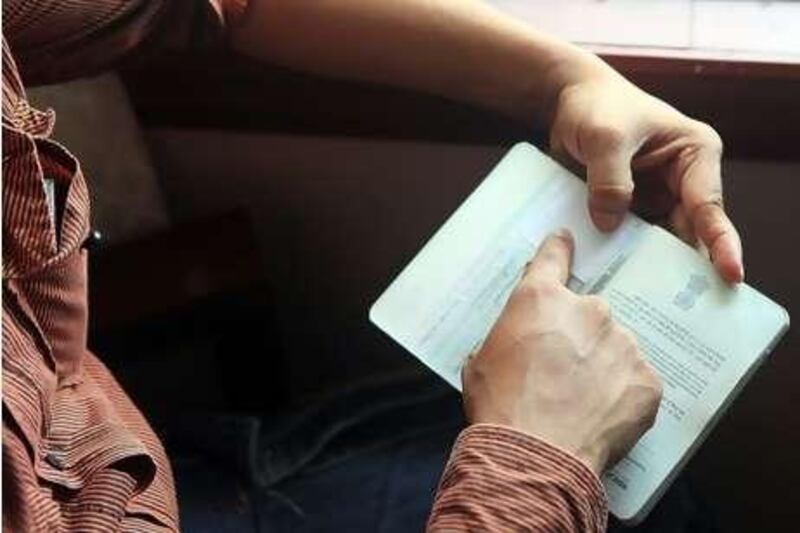KASARAGOD, KERALA // The confirmation that at least two passengers on the ill-fated Air India Express flight that crashed in May were travelling on forged passports has highlighted the extent of the fraud in southern India.
In the Kasaragod district of Kerala, just south of Mangalore where the plane from Dubai crashed, there is now an industry of unlicensed labour agents and forgers who provide false documents for people who want to work in the Gulf but cannot get genuine papers. So widespread is the trade that illegal agents refer to themselves as the "Indian Embassy of Kasaragod". Indian officials confirmed last month that at least two passengers on Flight 812, which crashed on landing at Mangalore in May, had used fake passports.
One of the unlicensed Kasaragod labour agents involved in the trade is a man who calls himself Shafiq. He boasts that he can provide his clients with not just passports but also false degree certificates and a range of other documents. He said business was so good, with at least 10 to 15 requests a day, that he was not able to meet the demand. The cost of acquiring a forged document ranges from between 40,000 to 50,000 rupees (Dh3,200 to 4,000), depending on the country of origin of the desired passport, the urgency of the request and the availability of original documents such as degree and birth certificates that are required to obtain a passport and a visa. Some agents deliver an entire package, complete with an employment visa.
"The price depends on whether they want to submit two photos or have other documents," Shafiq said. "Then the price goes up or down." The photograph was the one element of the forged passport that was new. The name, address and passport barcode of the original document were retained, he said. "The passport itself is never fake," said Shafiq. "It is genuine. Only some details are changed." He would not reveal how the documents were forged, saying he "outsourced" these services.
"It is magic," he said. "The most I can say is that computers are used. Nothing is done by hand anymore." Previously, Indian passports had photographs simply stuck on the page and laminated, which could be easily lifted and the photograph replaced. Newer passports now carry a scanned photograph along with a unique bar code. Shafiq claimed he has successfully travelled on forged documents. In his previous occupation in the Gulf, he paid Dh5,500 for a new passport when his employer would not return his passport and he wanted to leave his employment.
He said that while many would-be customers approached agents like himself asking for fake documents, agents also approached members of the public offering a job in the Gulf, complete with a passport and employment visa. The bearer was usually unaware that they were travelling on forged documents. Abdul Samad, one of the victims of Flight 812, was named in an Indian investigation as one of two passengers who had been travelling on a forged passport.
His son, K Shamsheel, 21, believes the travel agent made an error when entering the last two digits of the passport number. He said he had letters from several officials, including the travel agency, admitting their error. People apply for fake passports for a variety of reasons. UT Khader, a politician in Mangalore, explained that forgeries might be sought by someone, for instance, who had not reached a high enough level of education for a position, or someone who faced a ban, or had difficulties with the authorities either at home or in the Gulf.
Similarly, the legitimate passports that were then altered by the forgers came from a variety of sources. Some were provided by people who were desperate for money but couldn't get a loan from the banks. Loan sharks take their passports as collateral. Some were provided by workers returning to India who decided they no longer needed their passport. "When they return, they get rid of it," Mr Khader said. "They don't understand its value. A passport is very important. They should not abandon it. Some sell it to agents. Innocent people from villages get used."
@Email:sbhattacharya@thenational.ae * With reporting by Wafa Issa






